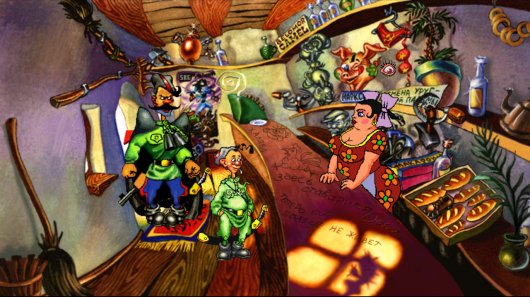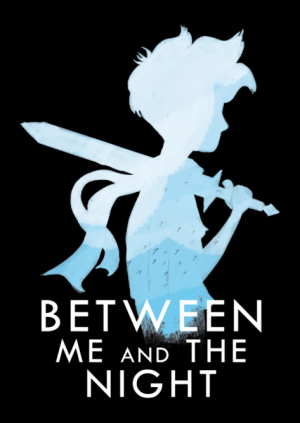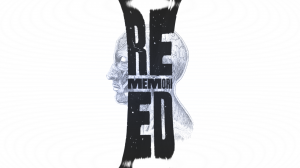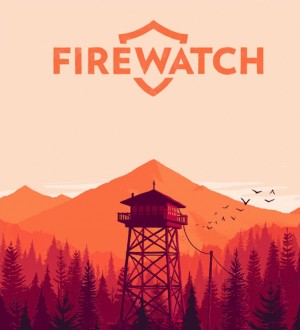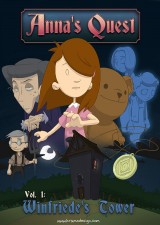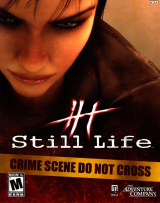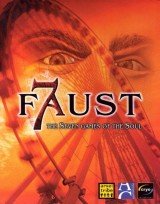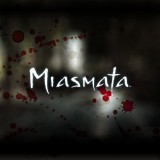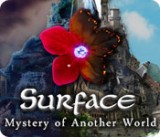Review for Red Comrades Save the Galaxy – Reloaded
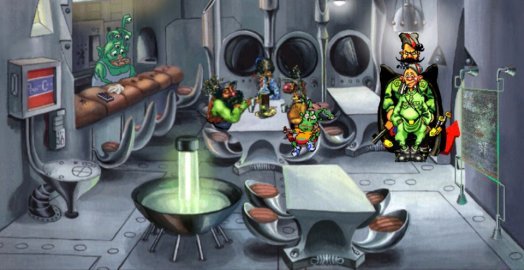
While most gamers likely recall 1998 as the year LucasArts’ Aztec-Noir opus Grim Fandango hit store shelves, that same year Russian adventure fans were eagerly anticipating the release of their own point-and-click comedy. Developed by S.K.I.F. and published by Buka Entertainment, Red Comrades Save the Galaxy was little-known globally but enormously popular in Russia, eventually spawning eight(!) sequels. Fast-forward nearly two decades, and digital distribution has made it possible for Buka to finally bring the game to worldwide audiences as Red Comrades Save the Galaxy – Reloaded. A unique art style, sometimes-edgy sexual references, great music, and quirky characters are bolstered by an atmospheric script voiced entirely in Russian, but the game’s reliance on Russo-centric humor, its bizarre and nonsensical plot, and a lack of challenging puzzles keep this unheralded title from truly shining.
The game follows the fictionalized adventures of real-life Red Army commander Vasily Ivanovich Chapaev and his sidekick Petka (or Pete) during the Russian Civil War. Despite the historically significant-sounding backdrop, however, Red Comrades is firmly established as an absurd comedy. The opening cinematic describes how Earth’s moon is actually a disabled alien spaceship, and that an errant shot by the Russian Navy cruiser Aurora during the October 1917 attack on the Winter Palace in St. Petersburg (a famous event that signalled the start of the war) hit the ship and caused the aliens hibernating aboard to wake up and begin an invasion of Earth.
This melodramatically-presented setup (complete with a brief Star Wars-style opening crawl sequence) belies the rather mundane impetus for the game’s actual plot, which is to find the missing banner of the Red Army headquarters in the appropriately-named village of Backwoods, where the adventure begins. Assuming the thieves belong to the anti-Communist White Army, whose headquarters is right across the Ural River from Backwoods, Vasily and Pete attempt to recover it, enlisting a blonde bombshell and sexy secret agent named Anka to help them in their quest.
The series of events that follow are some of the most outlandish I’ve ever seen in a video game, even for a comedy. In fact, there’s not so much of a plot here as there is a disjointed string of locations patched together by one off-the-wall event after another. Some typical activities include: stealing an item from a White Army commander while he is indisposed with S&M gear; providing a stoner with an item for his (literal) head collection; and accidentally unleashing a demonic force upon an Orthodox church, all in pursuit of a stolen red flag.
Even with this endless string of nonsensical pageantry, Red Comrades isn’t exactly a barrel of laughs. Much of the issue stems from how heavily it relies on understanding Russo-Soviet culture and history to “get” the jokes. For instance, a running gag throughout the first part of the game, in which you are trying to find a way across the Ural, is that Pete hopes no one drowns in the river, followed by angry chidings from Vasily Ivanovich. These jokes seemed strangely out of place until I happened to discover that the real-life Chapaev drowned in the Ural River while escaping the White Army in 1919. Up until that point, I had no idea that the protagonist was a caricature of a real person, much less had an understanding of jokes about his death. Fortunately, some references are easier to grasp for those with even a general understanding of Russian history, such as jokes regarding the Young Pioneers, a Communist youth movement.
At other times, jokes fall flat because they rely on wordplay in the Russian language. For instance, a character will say a word, then correct themselves with another word that sounds similar in the native voice-over but isn’t similar in the English subtitles. Such jokes are difficult to summarize here, because they require context to even realize they are supposed to be funny, but for those like myself with no real understanding of Russian, the result is an awkward feeling that baffles rather than entertains. Some humor is more successful, such as the absurd situations and the many adult references (including some nudity and mild sexual situations), like when Vasily and Pete discuss using a blow-up sex doll to cross the Ural, but there’s very little that I would actually call funny. The game rarely elicited more than a light chuckle from me, even at its best.
Aside from this, there are certain elements that might seem tin-eared from a racial perspective to a global, 21st century audience. For instance, at one point you have to infiltrate a high-end brothel frequented by White Army personnel by tricking your way past a stereotypical Chinese manager, who speaks with an exaggerated accent and enjoys heroin. There is also a butler in this area who is dark-skinned and referred to as “Mr. Black.” Thankfully, there isn’t anything overtly offensive in his portrayal or in the way other characters interact with him.
Puzzles are entirely of the inventory variety, and include such objectives as figuring out what combustible item you can use to make a fire, unblocking the door to a tomb, and getting bees from a drunken beekeeper in exchange for tobacco, which you procure from a suspicious “sailor” near the river. None of the puzzles are all that difficult, but often you simply aren’t given information on what should be done next, leading to some frustration until you either figure it out or use the built-in hint system for a nudge forward. The one obstacle that involves lever manipulation, in which you use an electric current to open a safe, is apparently not a logic puzzle, as no matter what order I pulled the levers, the puzzle would solve once all levers had been pulled. This isn’t necessarily an easy game, but most of the challenge comes from a lack of proper signposting, rather than any decent intellectual challenges.
From a graphics standpoint, Red Comrades is a nice treat, especially early in the game, as the mixture of hand-drawn backgrounds and bright coloring adds visual flair to many scenes. The game is separated into a three-part story structure, with each segment containing unique environments. Locations within each main area are varied, including places such as a Communist meeting hall, Backwoods’ town store, various rooms in the brothel, and a bank and post office. Later in the game you are able to explore an alien spaceship, with diverse rooms and even a cantina-like bar. The interesting art style frequently gives a sort of distorted or “swirled” appearance. The effect is most noticeable when looking at buildings, as they seem to be leaning impossibly far to the left or right, lending a rickety, deflated look to them.
Character design is quirky but somewhat uneven, with more attention being given to the three central characters. Vasily Ivanovich struts around comically, with a constant grimace on his face and his handlebar moustache bouncing with every step. Pete is a jelly-spined slacker who is much more interested in drinking and smoking, and flaps his feet as he walks. Anka is the typical sexy blonde secret agent who dresses provocatively, has a gun fetish, and swings her hips seductively as she makes her way across the screen. In contrast to these lovingly-animated characters, others are almost bizarrely lacking in detail, similar to 8-bit pixel art. This is especially apparent when characters of a decidedly non-human variety eventually appear, whose garish colors and pixelated appearance clash with the highly-detailed leads.
Cinematics are hit-and-miss. The opening cutscene, which takes place in space, is a strange mashup of excellent hand-drawn animations and either photographs or clip art superimposed on top of animations to create a surreal result. Whether this was intentional or not, I don’t know, but it is definitely jarring. Thankfully, in-game cinematics are good and quite immersive.
Sound effects are not particularly memorable, though splashing water and other environmental noises such as the ticking of cuckoo clocks are certainly appropriate. Where the game really succeeds is in the music, and here I can praise Red Comrades without qualification. Various scores provide appropriate atmosphere, from folk-style and pastoral tunes in Backwoods to organ music playing in an Orthodox church. Part two, where the brothel is located, consists predominately of cool piano-and-trumpet jazz tracks, while in the third segment sparse, futuristic soundscapes are the order of the day. There are some moments when the music becomes slightly repetitive, but I enjoyed the vast majority of the soundtrack.
Voice-overs, performed entirely in Russian, lend a highly unique flavor to the game. There are occasional lines that appear to have been redubbed by someone other than the original artist, but this only happens a couple of times. On-screen subtitles provide an understanding of what’s going on, but the translations suffer from an awkwardness that tends to be distracting, as though it was a struggle to find the proper words to use. In addition, there are some lines that appear to be untranslated entirely, showing up as Russian characters instead. While such occurrences are few and far between, and didn’t significantly hamper my understanding of what was going on (the story was doing that all on its own), it’s still an unfortunate oversight.
Interaction with other characters is done using a traditional dialogue menu, from which you can ask questions and select responses. There’s some branching dialogue, but each time you run out of things to say on one topic, you can continue talking about others by selecting different options until you run out. Coupled with translation issues the dialogue tends to be stilted, though serviceable, an issue that doesn’t appear to be the case in the often-spirited Russian voice-overs.
Red Comrades is entirely controlled using the mouse, and in addition to the original control scheme, which requires a right-click to bring up a menu that allows you to select the desired action, like walk, look, talk, inventory, etc., there is also a more modern method, dubbed “casual,” available as well. With the casual scheme, you left-click an item of interest (highlighted by the cursor with a yellow border absent in the classic scheme) and a contextual menu appears beside it showing only the options available for that particular item. For instance, you can never try to “talk” to a table in casual mode, whereas that option can at least be tried in the classic version, though nothing appears to happen if you do.
The inventory menu also contains options for saving, changing the control scheme, getting a hint, or accessing the map feature, which allows you to fast-travel from one location to another after you first encounter them. A portrait of Vasily Ivanovich also allows you to switch control from Pete when you, say, need to retrieve an item that’s easier for his commander to reach. It also helps for those times when Vasily blocks an item in the scene and you need to move him to access it. During one extended sequence, you are given control of Anka, during which time Vasily and Pete are unavailable as player characters.
On top of the 8-10 hours of gameplay, Red Comrades Save the Galaxy – Reloaded comes with some extras that are accessible from the game’s Steam folder if you purchase the Collector’s Edition upgrade. In addition to getting the remastered sequel Red Comrades 2: For the Great Justice upon release, you also receive an art book and a 30-minute behind-the-scenes video featuring subtitled interviews with the game’s main artist, Oleg Zakharov, and the CEO of Buka Entertainment, Alexander Mikhaylov, who oversaw the publishing of both the classic series and the remastered game. The art-related discussions were, for me, the more intriguing of the two interviews, if only because it showed how much detail went into creating the game. The digital art book also looked interesting, but seemed to be entirely in Russian despite supposedly having English subtitles.
Overall, I had very high hopes for this game, but even at its budget price, Red Comrades Save the Galaxy– Reloaded is not an easy title to love unconditionally. The highlights, such as the atmospheric voice-overs, occasionally-edgy content, interesting art style and excellent music simply can’t overcome issues like the lost-in-translation cultural references, a nonsense plot that hinges on a comically mundane quest, and the lack of any truly challenging puzzles. Warts and all, though, I enjoyed my time with the game, simply because there’s almost no other title like it on the market. It definitely falls short from a purely critical standpoint, but for the low price of admission it’s at least worth a look for its uniquely-Russian aesthetic and novelty value.



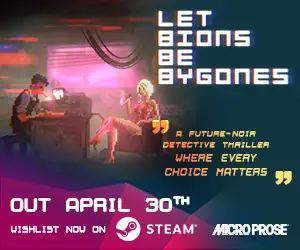

_capsule_fog__medium.png)

